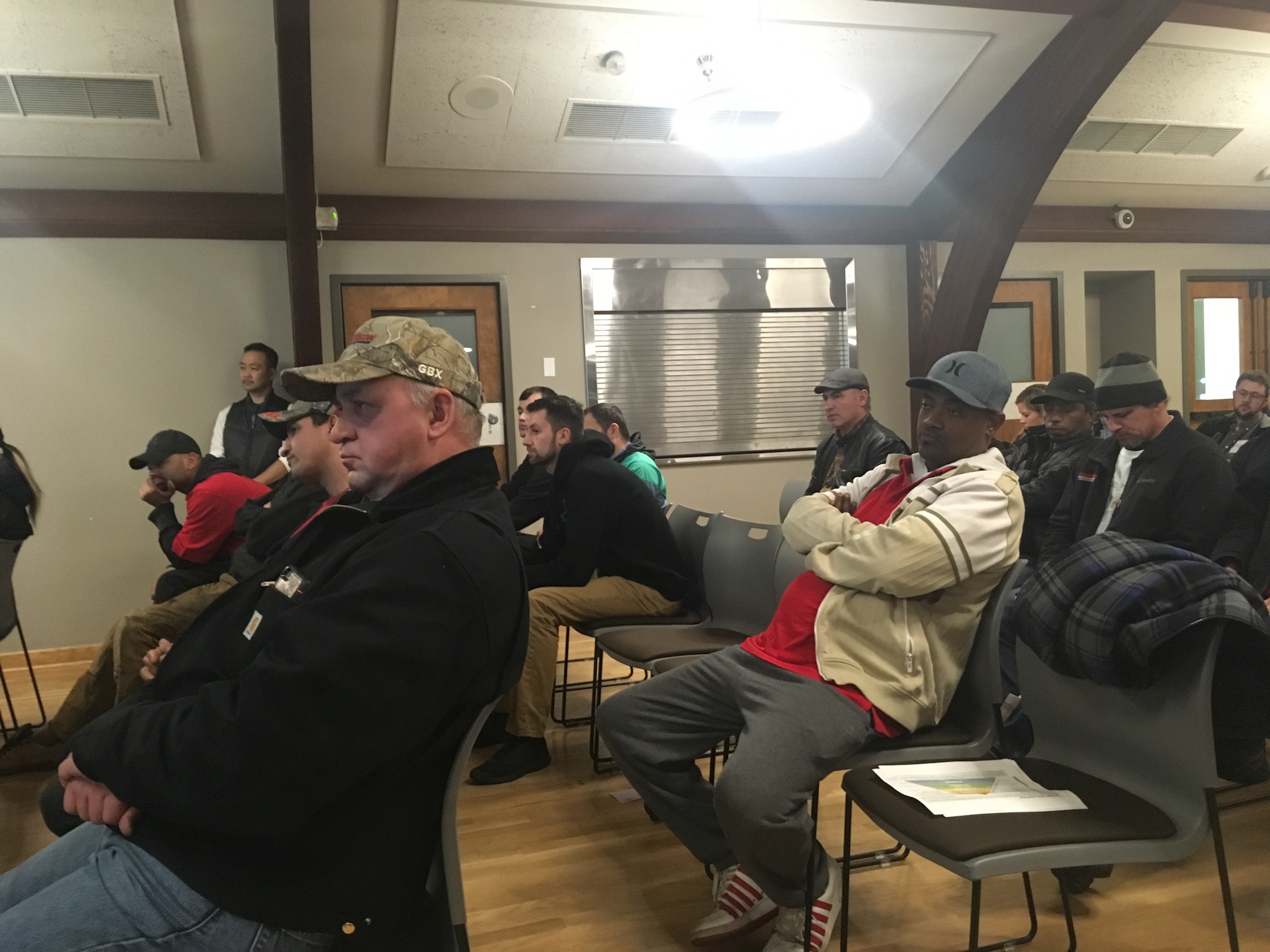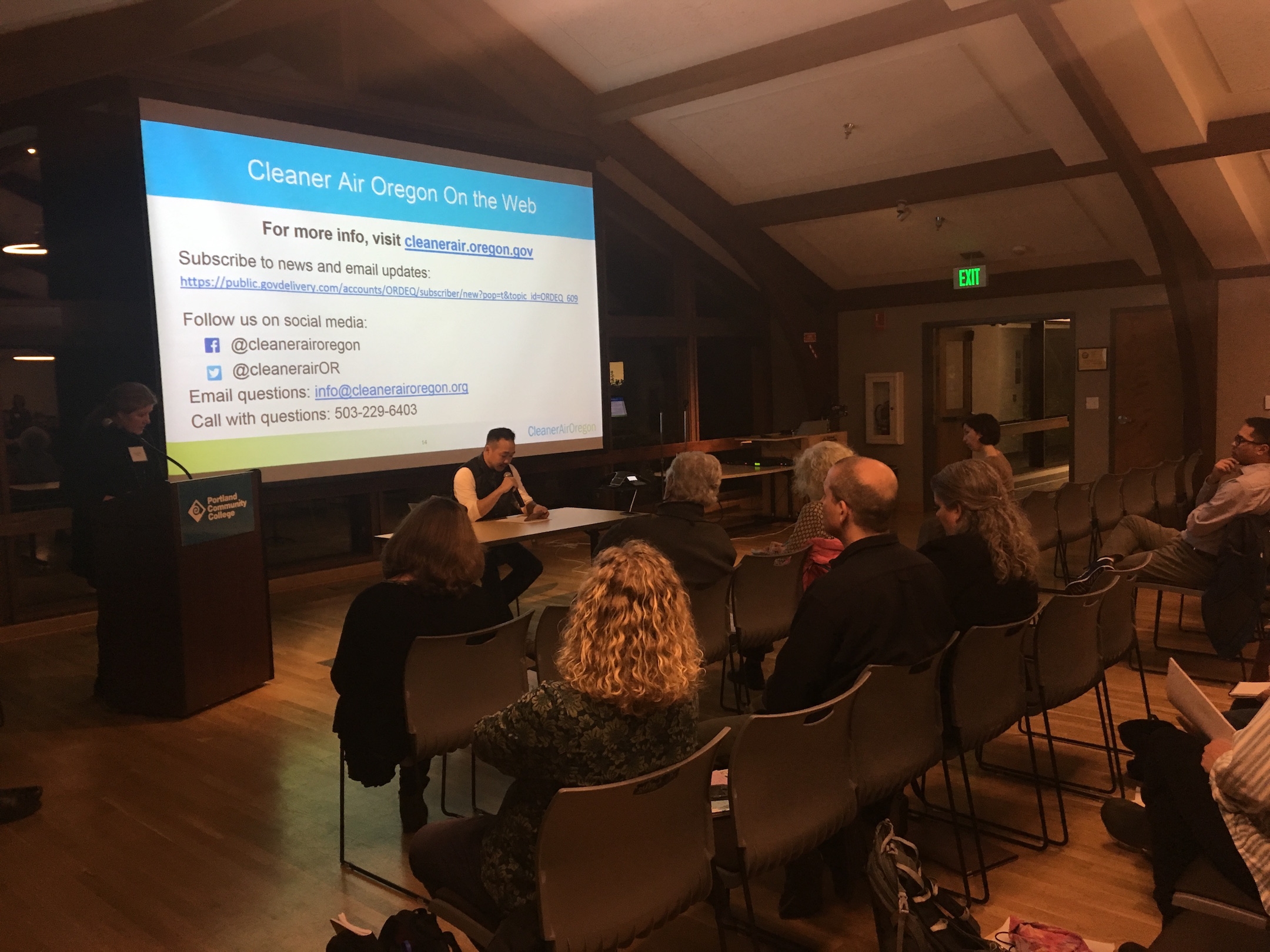Share this article! Southeast Portland residents and industry representatives got a chance to comment last night on Cleaner Air Oregon, a set of rules Gov. Kate Brown proposed that would limit industrial air toxics. We captured a few comments as neighborhood advocacy groups squared off against rail company employees. Related Story: DEQ ramps up penalties for … Read more
Southeast Portland residents and industry representatives got a chance to comment last night on Cleaner Air Oregon, a set of rules Gov. Kate Brown proposed that would limit industrial air toxics.
We captured a few comments as neighborhood advocacy groups squared off against rail company employees.
Related Story: DEQ ramps up penalties for asbestos violations
“I’ve lived in a neighborhood that was poisoned for 40 years,” said Jessica Applegate, a spokesperson for Eastside Portland Air Coalition. Applegate was one of several attendees who said she suffered from cadmium emitted by Bullseye Glass.
“I was being poisoned, and my legislators weren’t protecting me, and it was all legal. We have the fundamental right to not be poisoned and have these industries externalize the costs of production onto public health.”
 Jessica Applegate argued for stricter rules on behalf of SE Portland residents
Jessica Applegate argued for stricter rules on behalf of SE Portland residents
Gunderson Rail Company, a Greenbrier subsidiary, made a strong showing during the public comment session. Employees argued that the draft rules, which require a plan to be submitted three months after analysis, doesn’t give companies enough time to find solutions.
“We have been working for three years on reducing the amount of manganese in our weld wire,” said Chris Wilson, one of several Gunderson Rail Company employees who testified at the meeting. “We are spending time, effort and money before these rules were drafted to improve the air quality around our facility. The manganese is essential for the safety of our operations. We can’t just snap our fingers and make it go away.”
 Gunderson employees attending last night’s Cleaner Air Oregon meeting
Gunderson employees attending last night’s Cleaner Air Oregon meeting
Representatives from neighborhood groups like Neighbors for Clean Air, Portland Clean Air and Green Lents, expressed concern that the rules impose weaker standards on existing companies than new companies, and that a single public figure, the DEQ director, gets too much discretion in determing what companies get exceptions. They also wanted to see diesel emissions from trucks, not just point sources, included in the rules.
Regulators said they modeled the new rules on Southern California standards, considered the “Cadillac” of air toxics rulemaking. Existing companies get more flexibility, they said, because of the higher cost of retrofitting equipment.
 A regulator explains the new rules
A regulator explains the new rules
The rules are open to public comment until Dec. 22, then the Environmental Quality Comission will make a descision in July 2018, and the rules will have to pass the legislature. If the rules take effect, only the 80 highest-risk companies would be affected in the first five years.



